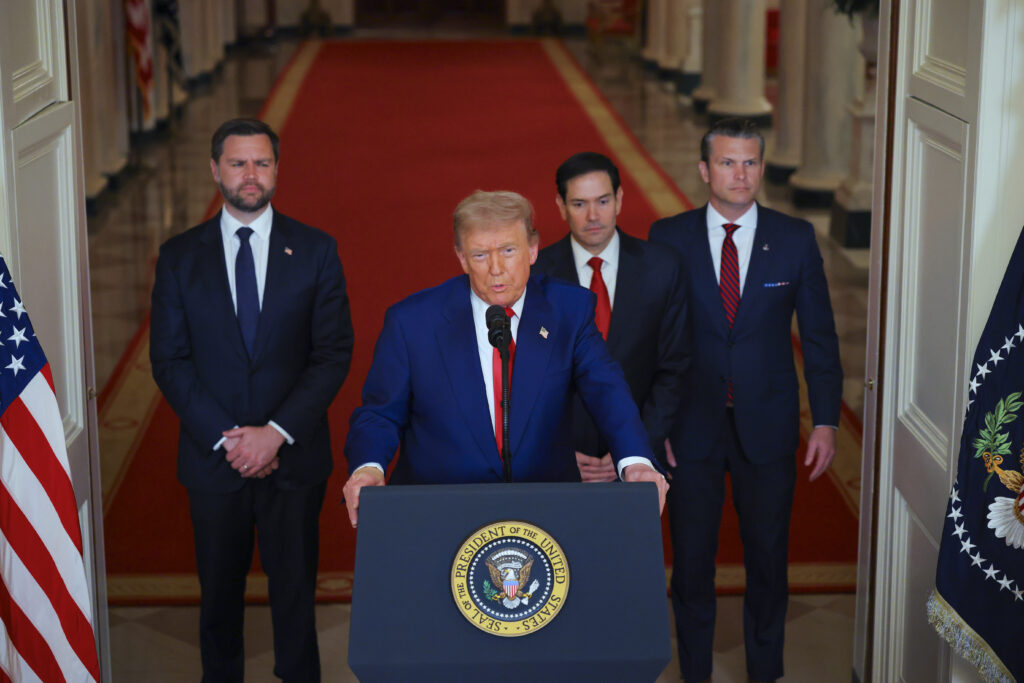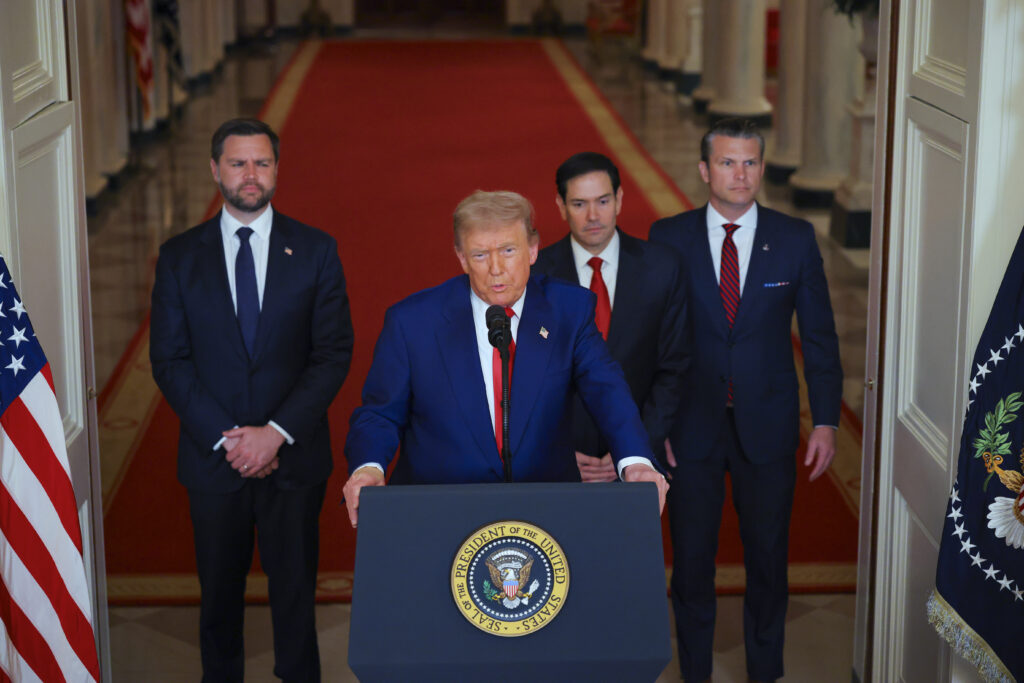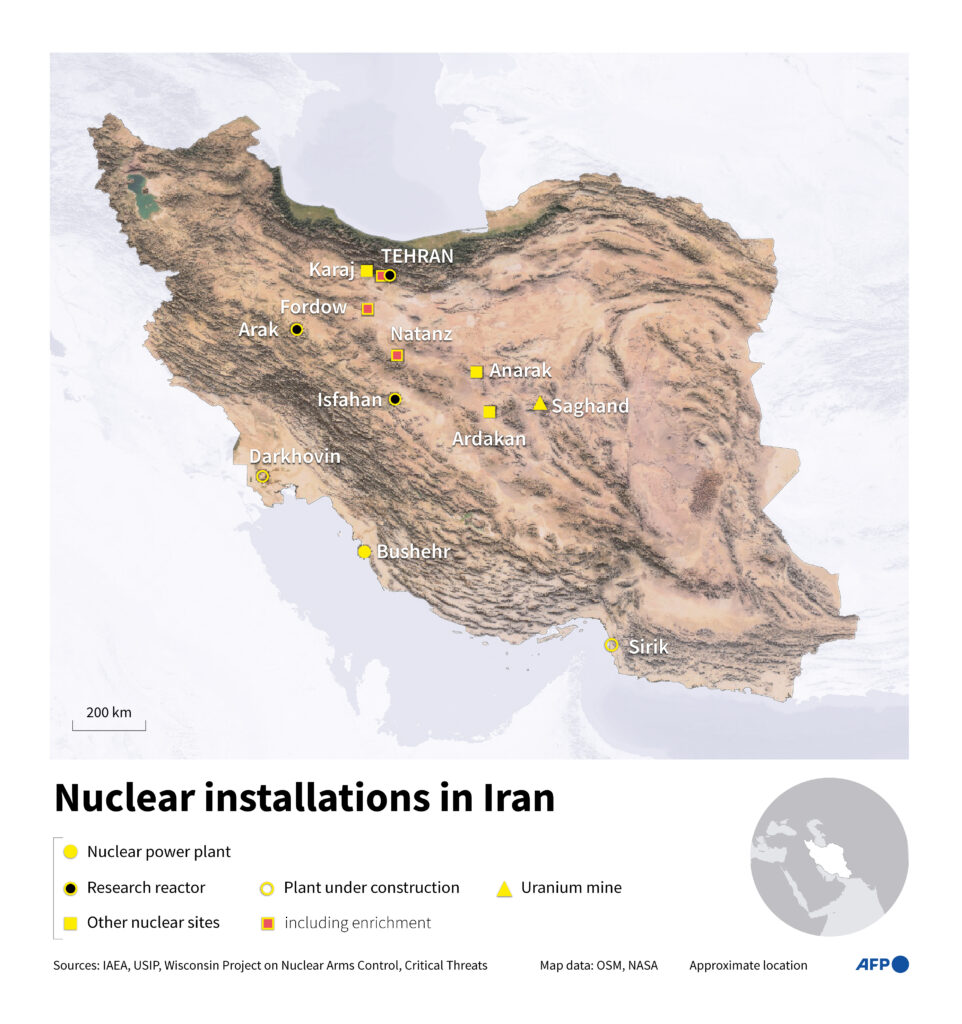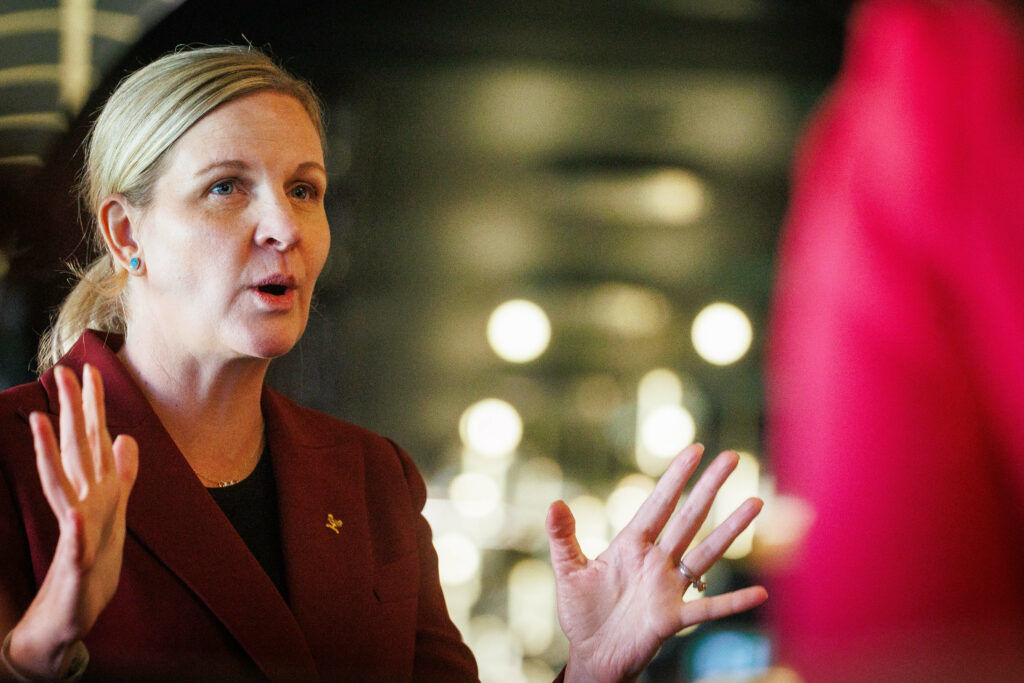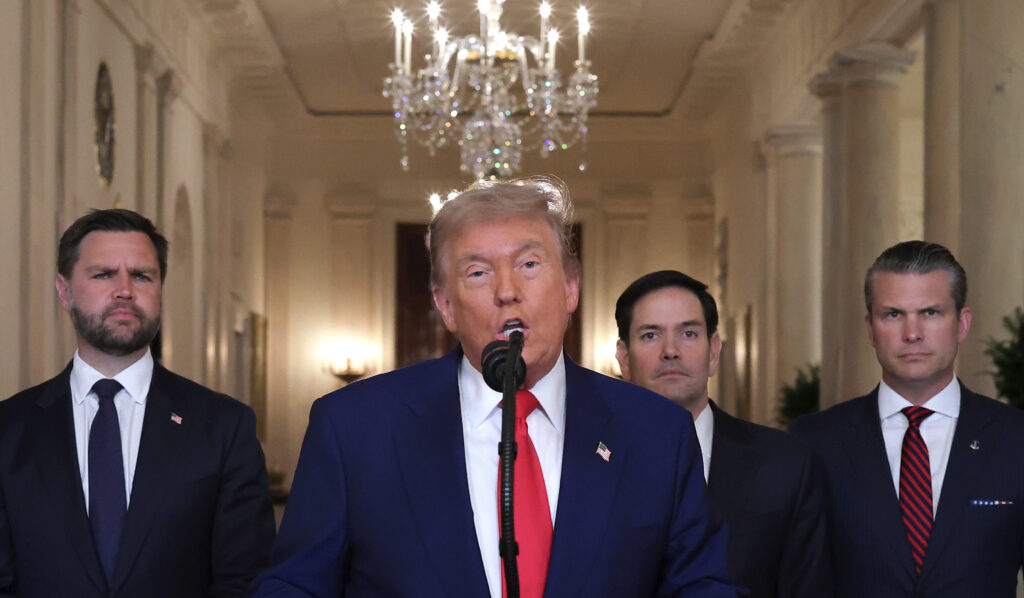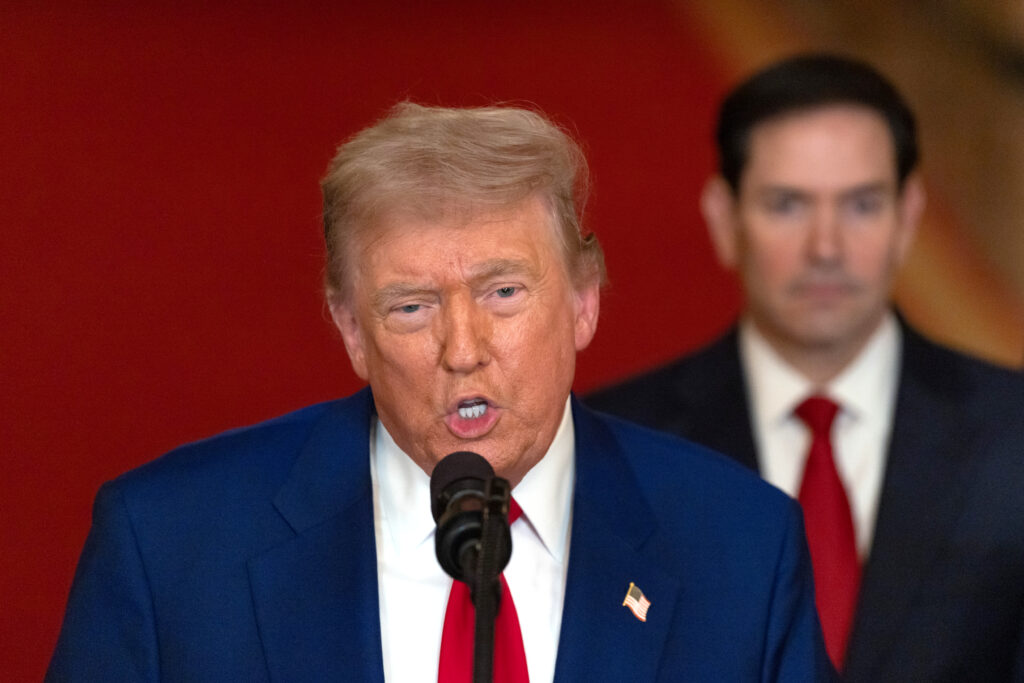Trump says US attack ‘obliterated’ Iran nuclear sites
President Donald Trump said US air strikes on Sunday “totally obliterated” Iran’s main nuclear sites, as Washington joined Israel’s war with Tehran in a flashpoint moment for the Middle East.In a televised address to the nation from the White House, Trump warned that the United States would go after more targets if Iran did not make peace quickly.The intervention by a US president who had vowed to avoid another “forever war” in the region threatens to dramatically widen the conflict, with Iran having said it would retaliate if Washington got involved.”Tonight, I can report to the world that the strikes were a spectacular military success,” said Trump, adding that they targeted the crucial underground nuclear enrichment plant of Fordo along with facilities at Natanz and Isfahan.”Iran’s key nuclear enrichment facilities have been completely and totally obliterated. Iran the bully of the Middle East must now make peace,” said Trump.Israeli Prime Minister Benjamin Netanyahu congratulated Trump on the strikes, saying that “with the awesome and righteous might of the United States will change history.”Condemning the US attacks as “lawless and criminal,” Iranian Foreign Minister Abbas Araghchi said his country has a right to defend its sovereignty.”The events this morning are outrageous and will have everlasting consequences,” he posted on X. “Iran reserves all options to defend its sovereignty, interest, and people.”Not long after, sirens sounded in Tel Aviv and explosions were heard from Jerusalem as Iranian state TV announced a fresh salvo of missiles launched.Tehran said Sunday there were “no signs of contamination” after the US attacks and Saudi regulators said “no radioactive effects were detected” in the Gulf region.Iranian media confirmed that part of the Fordo plant as well as the Isfahan and Natanz nuclear sites were attacked.- Surprise attack -Trump had said Thursday that he would decide “within two weeks” whether to join Israel’s campaign, in a move that many saw as a window of diplomatic opportunity.But the Republican’s decision to strike Iran came far sooner.Flanked by Vice President JD Vance, Defense Secretary Pete Hegseth and Secretary of State Marco Rubio, Trump said that future attacks would be “far greater” unless Iran reached a diplomatic solution.”Remember, there are many targets left,” he said.Trump however made no mention of regime change, despite having warned last week that Iranian supreme leader Ayatollah Ali Khamenei was an “easy target.”The raid on the Iran nuclear sites was carried out by B-2 stealth bombers that dropped so-called “bunker buster bombs,” along with submarine-launched Tomahawk cruise missiles, US media reported.Trump said earlier on his Truth Social site that a “full payload of BOMBS” was dropped on Fordo and said that “all planes are safely on their way home. Congratulations to our great American Warriors.” Pictures posted by the White House showed Trump in a red “Make America Great Again” cap meeting with top national security officials in the Situation Room, shortly before the strikes were announced.After the address, Trump warned Iran against “any retaliation.” Iran and its proxies have previously attacked US military bases in the region, including in Iraq.Iran’s Huthi allies in Yemen had on Saturday threatened to resume their attacks on US vessels in the Red Sea if Washington joined the war.The US president had stepped up his rhetoric against Iran since Israel first struck Iran on June 13, repeating his insistence that it could never have a nuclear weapon.Israel and Iran have traded wave after wave of devastating strikes since then.- MAGA split -Trump spoke to Netanyahu after the attacks, while the United States also gave key ally Israel a “heads up” before the strikes, a senior White House official told AFP.Iran’s President Masoud Pezeshkian had warned earlier Saturday of a “more devastating” retaliation should Israel’s nine-day bombing campaign continue.Iran denies seeking an atomic bomb, and on Saturday Pezeshkian said its right to pursue a civilian nuclear program “cannot be taken away… by threats or war.”Iran’s Revolutionary Guard meanwhile announced early Sunday that “suicide drones” had been launched against “strategic targets” across Israel.The US military strikes on Iran also threaten to cause political tensions at home for Trump.The issue has opened a split in Trump’s “MAGA” movement, with many key Republican supporters calling on Trump to avoid embroiling the United States in another foreign war.Trump’s first 2016 election victory in particular came on the back of his promises to get America out of its wars in Iraq and Afghanistan.Democrats have also assailed him.Leading US Democrat Hakeem Jeffries said Trump risked US “entanglement in a potentially disastrous war in the Middle East,” while others have accused him of bypassing Congress to launch a new war.
